Text
Orion Pictures: The First Modern Mini-Major: Works Cited
Davidson, Tom. “Thirty Years Ago the Silence of the Lambs Changed Everything.” Medium, 15 Feb. 2021, tomdavidson92.medium.com/thirty-years-ago-the-silence-of-the-lambs-changed-everything-acad73d4010. Accessed 6 May 2024.
Flinn, Caryl. “Trouble in Mind in Independent Cinema: Smooth Sailing in a Troubled Term.” Alan Rudolph’s Trouble in Mind: Tampering with Myths, University of Michigan Press, 2023, pp. 27–40. JSTOR, http://www.jstor.org/stable/10.3998/mpub.12741209.7. Accessed 6 May 2024.
Galuppo, Mia. “Orion Pictures Lands “Watchmen” Writer Cord Jefferson’s Directorial Debut.” The Hollywood Reporter, 2 Dec. 2022, www.hollywoodreporter.com/movies/movie-news/erasure-movie-starring-jeffrey-wright-acquired-orion-1235274104/. Accessed 6 May 2024.
Haupt, Norbert. “Movie Review: Rambo: First Blood.” Norbert Haupt, 13 May 2020, norberthaupt.com/2020/05/12/movie-review-rambo-first-blood/. Accessed 6 May 2024.
Henry's Movie Guide. “The Terminator (1984) Movie Review.” Henry’s Movie Guide, 5 Apr. 2017, www.henrysmovieguide.com/blog/2017/4/5/the-terminator-1984-movie-review. Accessed 6 May 2024.
Herbert, Daniel. “‘Upscale’ Cinema: Fine Line Features and the Indie Boom of the 1990s.” Maverick Movies: New Line Cinema and the Transformation of American Film, 1st ed., University of California Press, 2024, pp. 113–44. JSTOR, http://www.jstor.org/stable/jj.7794626.8. Accessed 6 May 2024.
Joe Rogan Experience. “How Oliver Stone’s Experiences in Vietnam Influenced Platoon.” Www.youtube.com, 2020, youtu.be/GMk-i_h5Yn4?si=-KbfmOMu4pRpvUr4&t=433. Accessed 6 May 2024.
McNary, Dave. “MGM Re-Launches Orion Pictures to Amplify Underserved Voices.” Variety, 20 Aug. 2020, variety.com/2020/film/news/mgm-orion-pictures-amplify-underserved-voices-1234741853/. Accessed 6 May 2024.
Tzioumakis, Yannis. “Mini-Majors and Major Independents.” American Independent Cinema: Second Edition, Edinburgh University Press, 2017, pp. 203–23. JSTOR, http://www.jstor.org/stable/10.3366/j.ctt1vw0rhw.16. Accessed 6 May 2024.
0 notes
Text
Orion Pictures: The First Modern Mini-Major: The Silence of the Lambs
The Silence of the Lambs, released in 1991, represented the culmination of Orion Pictures' golden age. Directed by Jonathan Demme and starring Jodie Foster and Anthony Hopkins, this chilling psychological thriller captivated audiences with its gripping storyline and unforgettable characters. Despite facing challenges during production, including budget constraints and creative disagreements, The Silence of the Lambs emerged as a masterpiece of suspense cinema. Demme after the first full cast read, “I thought, this could be the scariest movie ever, and I wanted to make that movie. I wanted to make a Psycho-calibre fucking terrifying movie.” (Davidson) The film's success at the box office and its sweeping success at the Academy Awards, where it won five Oscars including Best Picture, reaffirmed Orion's status as a powerhouse in the film industry. With its blend of artistry, innovation, and commercial appeal, The Silence of the Lambs remains a shining example of the kind of groundbreaking cinema that defined Orion Pictures during its heyday.

0 notes
Text
Orion Pictures: The First Modern Mini-Major: Platoon
Platoon, released in 1986, marked a departure from the action-packed fare that had come to define Orion's early successes. Directed by Oliver Stone and based on his own experiences as a soldier in the Vietnam War, Platoon offered a harrowing and unflinching portrayal of the horrors of combat. Shot on location in the Philippines with a relatively modest budget, the film's authenticity and emotional depth struck a chord with audiences and critics alike. Stone credits this authenticity in an interview with Joe Rogan on the JRE podcast for the success of Platoon. (Joe Rogan Experience) Platoon's critical acclaim and eventual Academy Award wins for Best Picture and Best Director demonstrated Orion's ability to produce prestige films that were both artistically significant and commercially viable.

0 notes
Text
Orion Pictures: The First Modern Mini-Major: The Terminator
The Terminator, released in 1984, further solidified Orion Pictures' reputation for producing innovative and groundbreaking cinema. Directed by James Cameron and starring Arnold Schwarzenegger, this science fiction thriller blended action, suspense, and dystopian themes to create a film that was both thrilling and thought-provoking. With its cutting-edge visual effects and relentless pace, The Terminator pushed the boundaries of what was possible in filmmaking at the time. According to Henry’s Movie Guide, “The Terminator promises a thrill ride, full of guns, robots, and James Cameron coolness.” (Henry's Movie Guide) Orion's willingness to take risks and invest in visionary talent like Cameron paid off, as the film became a commercial and critical success, propelling the studio to even greater prominence in the industry.
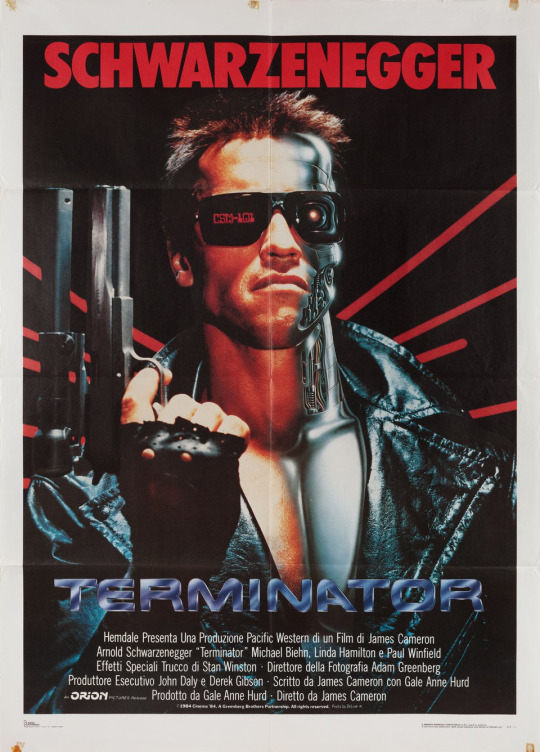
0 notes
Text
Orion Pictures: The First Modern Mini-Major: First Blood
First Blood, released in 1982, marked the beginning of a significant era for Orion Pictures. This action-packed thriller, starring Sylvester Stallone as the troubled Vietnam War veteran John Rambo, epitomized the type of gritty, character-driven films that would become synonymous with Orion's brand. One of the famous quotes of the movie is “Don’t push it or I’ll give you a war you won’t believe.” (Haupt) With its tense atmosphere and raw depiction of post-war trauma, First Blood captivated audiences and laid the groundwork for Orion's success in the coming years. Despite being a relatively low-budget production, the film's tight script and powerful performances resonated with viewers, cementing its place as a classic of the action genre and setting a high standard for future Orion releases.
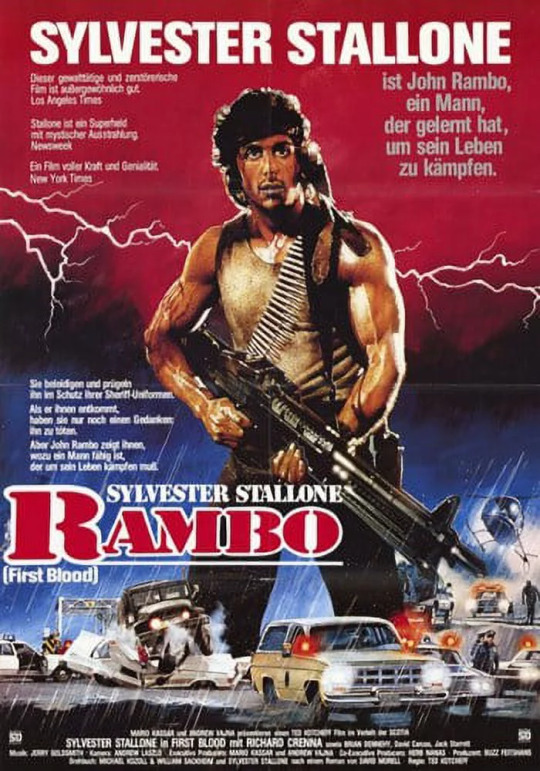
0 notes
Text
Orion Pictures: The First Modern Mini-Major: Orion’s Pivotal Films Deep Dive
The following films played a pivotal part in the history of Orion Pictures specifically during it’s time in the 1980s and early 1990s, First Blood (1982), The Terminator (1984), Platoon (1986), and The Silence of the Lambs (1991). All four of the films resemble an Orion film from a budget, production, and distribution standpoint.
0 notes
Text
Orion Pictures: The First Modern Mini-Major: Orion & MGM
In August of 2020 MGM decided to relaunch Orion Pictures as a way to serve underrepresented voices within the film industry, sticking to the independent niche that the label used to have in the 1980s. With Alana Mayo stepping in as president of the label. Mayo on the relaunch of Orion, “We are at an exciting and critical tipping point in our industry. For years many filmmakers and creators who have been considered and treated as outsiders have nonetheless persisted in creating visionary films that drew audiences across the globe and defined culture. Many of these films and filmmakers inspired me to pursue storytelling as a career, and to work towards creating a more equitable environment for all creators.” (McNary) One of the most recent developments for Orion Pictures was the acquisition of the directorial debut of Watchmen writer Cord Jefferson, who adapted the novel Erasure by Percival Everett titling the movie as American Fiction and released in 2023. (Galuppo) The film stars Tracee Ellis Ross, Erika Alexander, Leslie Uggams, Sterling K. Brown, Myra Lucretia Taylor, John Ortiz, Issa Rae and Adam Brody. With the plot of the film centered around Thelonious “Monk” Ellison, a writer and English professor whose writing career has stalled because his work isn’t deemed “Black enough.” (Hollywood reporter) The film has a 7.5/10 from IMDb and a 96% on Rotten Tomatoes.

0 notes
Text
Orion Pictures: The First Modern Mini-Major: Fall from Grace
At the end of 1987, Orion had slipped at the box office to fourth place. The rentals from its successful films such as Throw Momma from the Train were offset by the failures of films such as Best Seller and House of Games. (Tzioumakis) The financial stability of the company was heightened further when in March of 1988 its accounts revealed a long-term debt of 64% of capitalization. With most of the debt being associated with the company’s in home video arm. (Tzioumakis) The library of videos for in-home video did not consist of major titles and failed to attract consumers. Lastly, the main difference between Orion and the majors showed, as Orion did not have a corporate parent to guarantee cash flows during times of difficulty and did not own production facilities or possess any real estate that it could use as collateral funds to raise capital. From March of 1988 on, Orion entered a period of decline. Despite record rentals from films such as Dances with Wolves (1990) and The Silence of the Lambs (1991). Orion’s eventual bankruptcy in 1991 was influenced by its stubbornness to operate independently. Teaching a valuable lesson about survival in the contemporary American cinema, the power of corporate capital, which represents the only safety net for the extremely precarious nature of the film business. This lesson was best learnt by companies such as Miramax and New Line Cinema, both sharing the same limited financial power that Orion had in order to compete with the global superpowers that the majors had become. Orion’s success did teach the majors that are still gaps in the global entertainment market, which, when exploited wisely, can undermine the majors’ oligopoly. Orion became part of MGM in 1997, when MGM bought John Kluge’s film holdings for $578 million. (Tzioumakis)
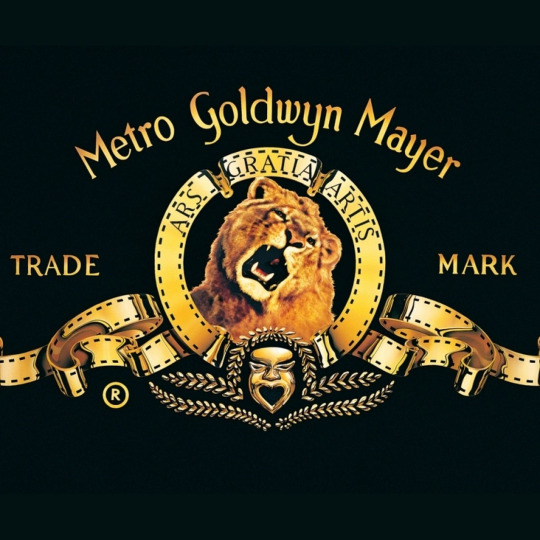
0 notes
Text
Orion Pictures: The First Modern Mini-Major: Stardom
The company was on the same trajectory as the major film studios, beginning to integrate horizontally, however, Arthur Krim continued to ground the company’s production output in the low to mid budget region. For Krim his goals for the future were to focus on minimum risk investment and co-financing deals to avoid financial disaster, this approach proved to be fatal in the second half of the 1980s. Krim’s thinking was based on the recent success of Platoon (1986), a $5.4 million independently financed film that the four major studios had all rejected. (Tzioumakis) It went on to gross $137 million at the North American box office alone and won four Oscars in 1987. Orion believed that the market for low to mid budget films was lucrative and could be controlled with the absence of the major studios. However, the market was less stable than the blockbusters, due to blockbusters being able to recoup a portion of their investments via the ancillary markets. (Tzioumakis) Nonetheless, Orion reached number one at the box office for the first three months of 1987. But the company began to run into some financing trouble towards the later half of the year.
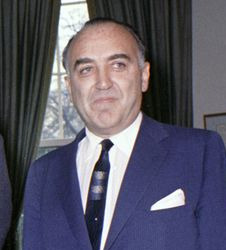
0 notes
Text
Orion Pictures: The First Modern Mini-Major: New Frontier for Orion
Before the expiration of Orion’s deal with Warner Brothers it purchased Filmways for $26 million. (Tzioumakis) Filmways had a library of approximately 950 titles, this meant Orion could enter the distribution market in both the theatrical and ancillary markets. In order to challenge the major studios Orion’s plan was to release one film per month. In its first year as a distributor Orion struck gold with it’s August release of Rambo: First Blood (1982), grossing more than $45 million at the US box office. In 1983, Orion established, Orion Classics, to handle art-house foreign films in the American market in order to establish itself in the soon to be “Indie wood.” (Herbert) After modest success of its first titles Orion announced plans to compete with the major studios and found its big break in 1985 as films such as The Terminator, The Woman in Red, Code of Silence, Desperately Seeking Susan, and Back to School performed well at the box office. Desperately Seeking Susan became part of the start of the “Indie wood” genre of films that was beginning to take place within the film industry, as the year before the Independent Spirit Awards were created. (Flinn) The success led to a record of 17 pictures scheduled for release in 1986.

0 notes
Text
Orion Pictures: The First Modern Mini-Major: Creation & Partnership with Warner Brothers
Orion Pictures was created in February 1978, when five top executives decided to leave United Artists. The executives included Arthur Krim and Robert Benjamin, the two had previously managed United Artists over the past 27 years ultimately shaking up the film industry itself. The reputations of the five executives led to a distribution deal with Warner Brothers, raising $90 million in finances, leading to Orion being Warner’s first satellite production company. (Tzioumakis) This deal allowed the executives to remain autonomous from Warner in terms of management and creative decisions but having to rely on Warner distribution to place their product in the market. However, due to this arrangement disagreements on marketing and distribution led to the relationship between Warner and Orion to sour. The deal charged to Orion for distribution was 30% for domestic releases and 40% for worldwide releases by Warner Brothers. (Tzioumakis) Warner also allowed its foreign distribution offices to veto the release of Orion films if they thought they would not perform well in certain markets, ultimately hurting the box office success of Orion. Thus, Orion was forced into low budget films and had relatively small box office success due to Warner’s ability to dictate distribution. Orion had to pass Raiders of the Lost Ark (1981) due to its high cost and principal demands from the film’s gross. (Tzioumakis) Ultimately, from 1978 to 1982 Orion Pictures produced 23 films for Warner Brothers and only two can be considered big hits. 10 (1981) and Arthur (1981), with rentals of $37 and $42 million, respectively. Both companies saw that the relationship was not working, with Arthur Krim sending a memo out to the partners laying out reasons for why Orion needed to become a producer-distributor, painting the picture of Orion Pictures to become a mini major within the film industry. (Tzioumakis)
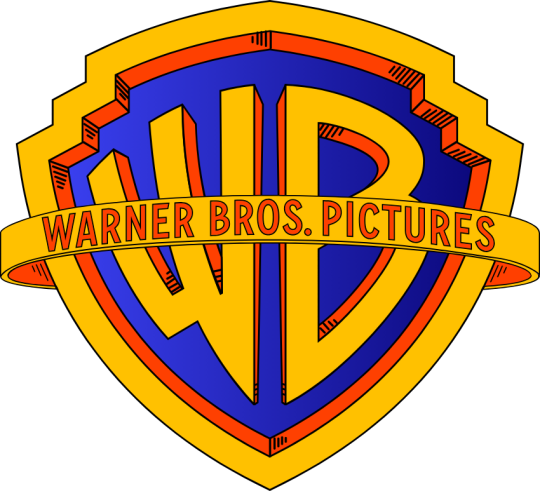
0 notes
Text
Orion Pictures: The First Modern Mini-Major: Intro
Orion Pictures is currently owned by MGM but was once referred to as a mini-major within the film industry during the 1980s to the 2000s. Mini-majors mainly worked with much lower budgets and with more unusual film material than the major film studios of the time, Orion, Miramax, and New Line Cinema became part of the discourse of American independent cinema. Orion Pictures rose to prominence with its focus on mid-budget, quality films. Orion Pictures paved the way for the likes of Miramax and New Line Cinema to be able to compete with the major studios, specifically with its success during the 1980s and early 1990s.

0 notes